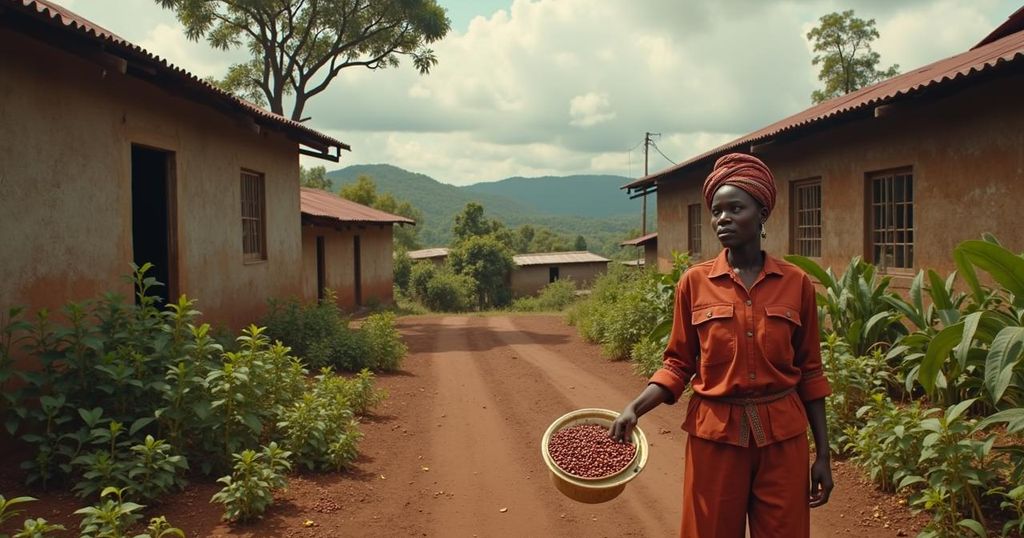The Democratic Republic of the Congo is witnessing a resurgence in its coffee industry due to increasing international demand for specialty coffee. Through a USAID-funded initiative, cooperatives in South Kivu are enhancing their production methods and securing better prices in the global market. Notably, cooperative farmers have formed a pre-harvest financing agreement with Westrock Coffee, successfully sold products to major U.S. retailers, and eliminated past risks associated with illegal exportation, marking a positive evolution for the sector.
In the Democratic Republic of the Congo (DRC), a country once renowned for its robust coffee industry, recent decades of conflict and instability had led to a significant decline in coffee production and exportation. However, there is a promising transformation underway as the international demand for specialty coffee reaches unprecedented levels. With support from USAID, coffee farmer cooperatives in South Kivu are revitalizing the coffee sector by enhancing their production techniques, from the optimal harvesting of coffee cherries to effectively marketing their products and securing international clients. Farmers are now learning the critical timing for harvesting their coffee, which is essential for rendering high-quality specialty coffee capable of commanding better prices in the global marketplace. The benefits of this initiative are evident: cooperatives have successfully established a pre-harvest financing agreement with Westrock Coffee, enabling farmers to receive upfront payments for their cherries during the harvest period. The impact of these changes is palpable; South Kivu cooperatives achieved notable recognition at the DRC’s first international coffee cupping competition in 2015. Timothy Fella, a judge at the event and a buyer for Counter Culture Coffee, remarked on his eagerness to obtain this high-quality Congolese coffee, emphasizing the increasing attractiveness of these beans in the market. The cooperative farmers sold five shipping containers of processed coffee beans to prominent U.S. retailers, including Starbucks, thereby marking a significant turn towards an era of improved sales and trading conditions. The positive shift in market dynamics has led to better offers from local traders for the remainder of the coffee harvest, fostering a sense of economic empowerment among the farmers. Previously, farmers such as Constantin Kasikagwe Mukuba faced obstacles in selling their coffee, often resorting to perilous routes to Rwanda. The USAID-supported changes have eliminated these dangerous journeys.
The Democratic Republic of the Congo has a historical legacy as a prominent coffee producer. However, decades of political instability and economic challenges severely impacted the industry, leading to a significant downturn in production and exportation. Many farmers previously sold their coffee under risky circumstances, facing various barriers to accessing broader markets. Recent efforts to bolster the industry, particularly through international partnerships, have spearheaded a renaissance in Congolese coffee production, aiming to revitalize the sector and improve farmers’ livelihoods.
In summary, the revival of the Congolese coffee industry represents a significant step towards economic recovery and sustainability within the DRC. Through education and partnerships facilitated by USAID, local coffee farmers are learning essential skills that enhance their production and sales capabilities. The establishment of international connections and improved trading conditions signifies a promising future for these farmers, bolstering their financial independence and community development.
Original Source: www.usaid.gov






